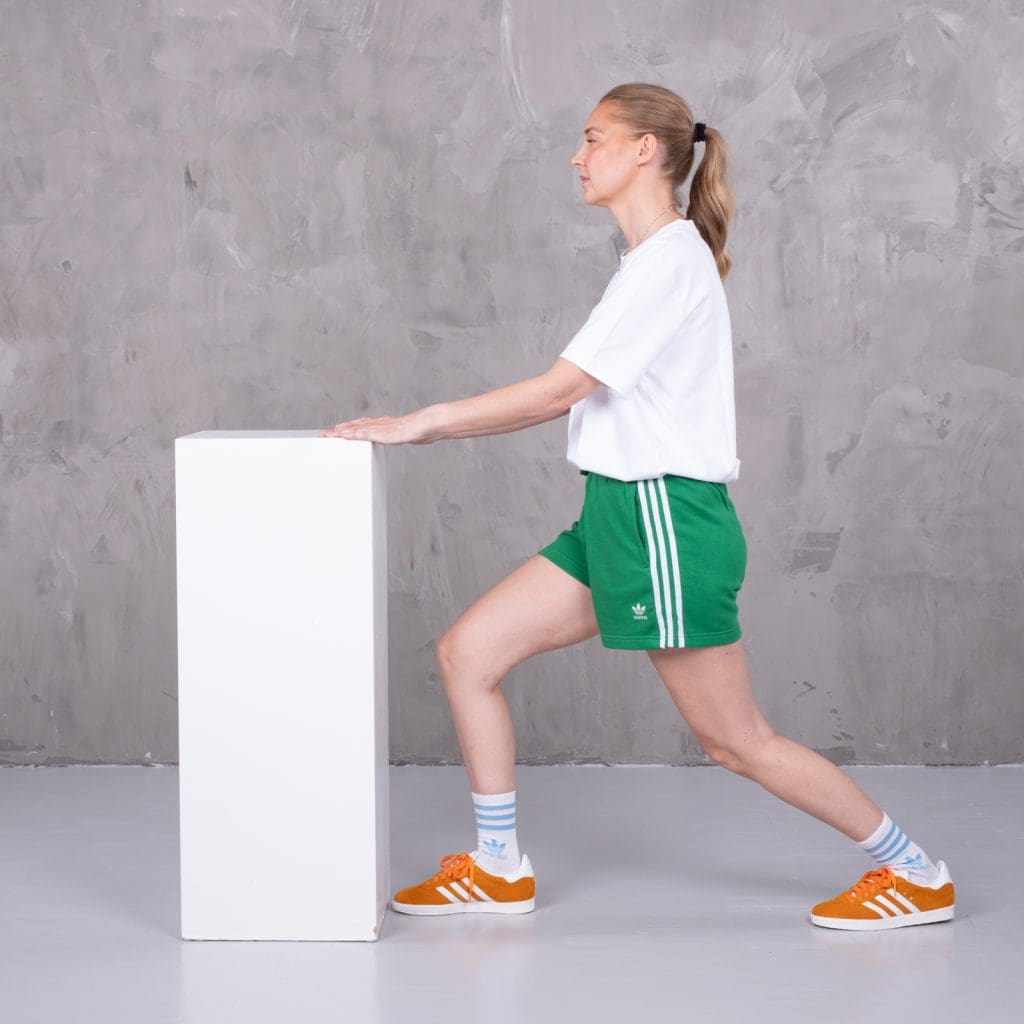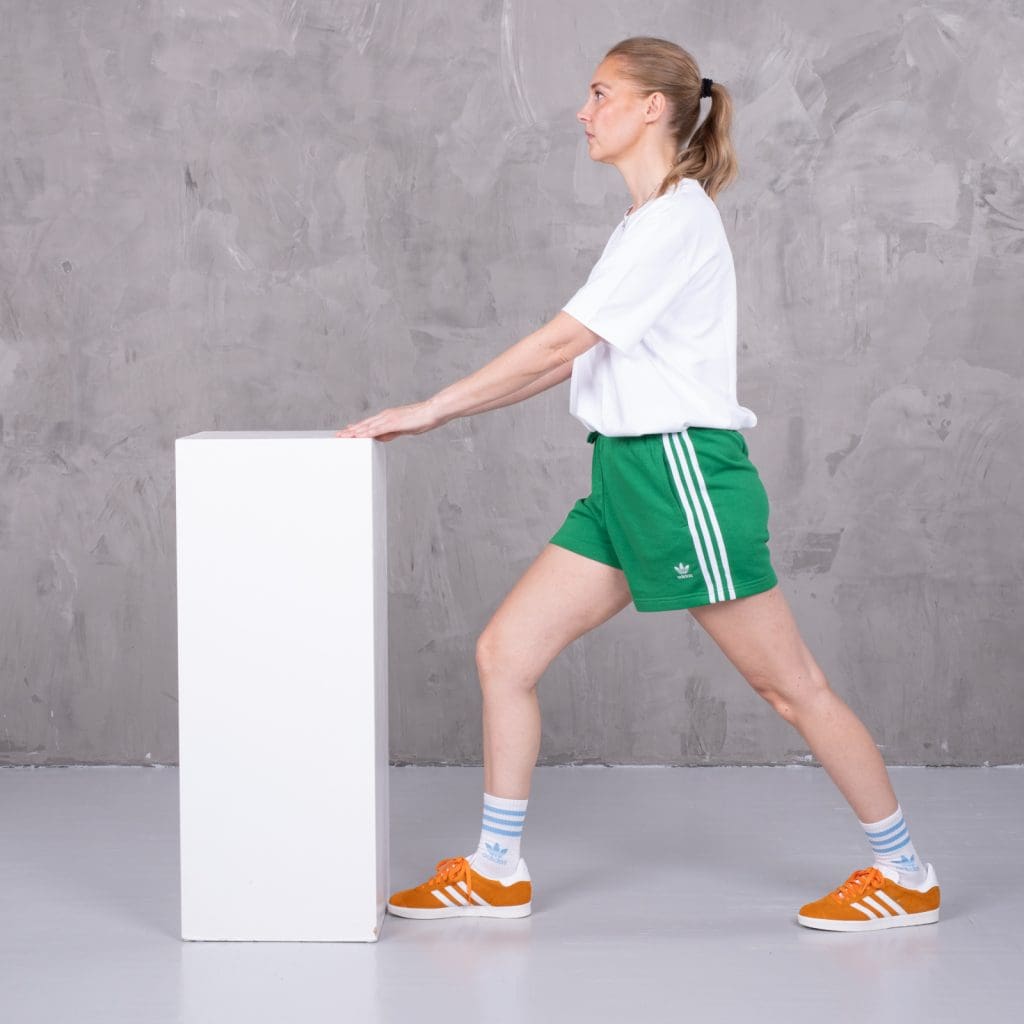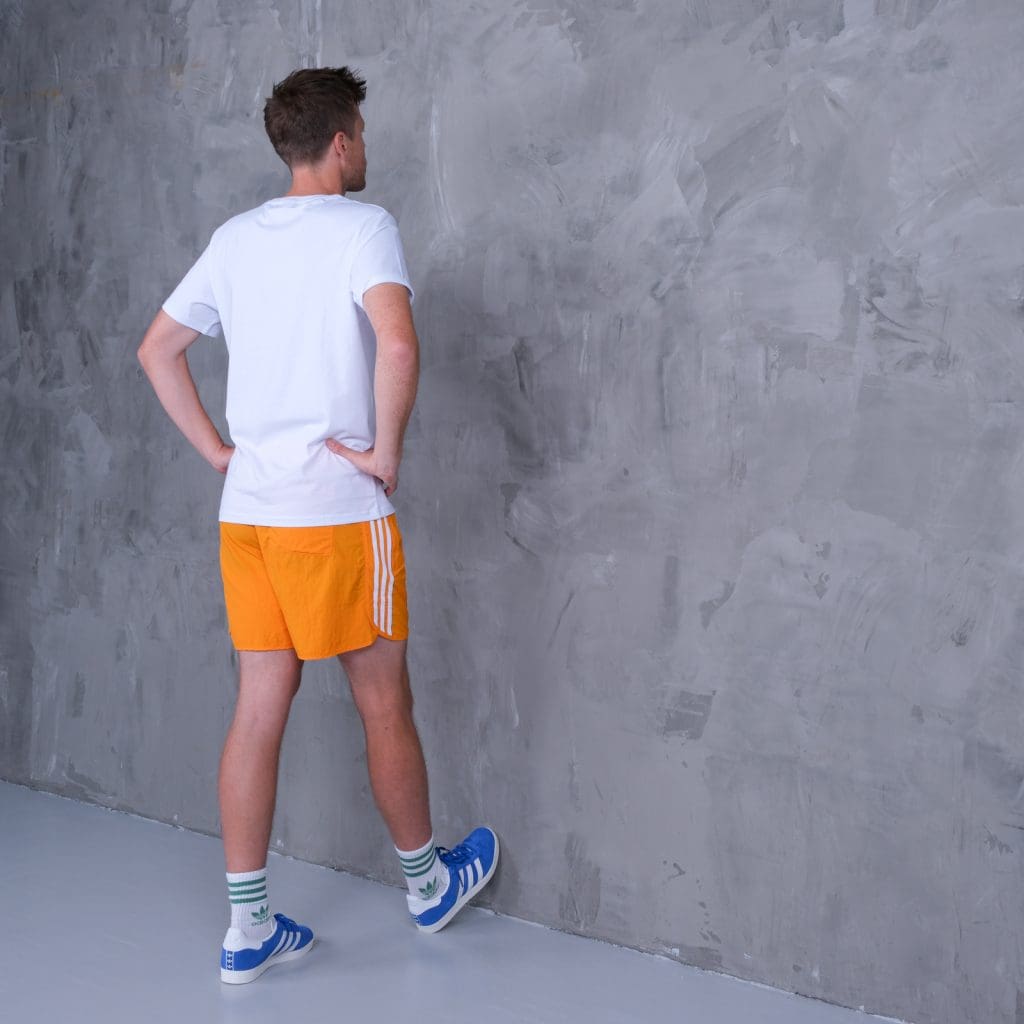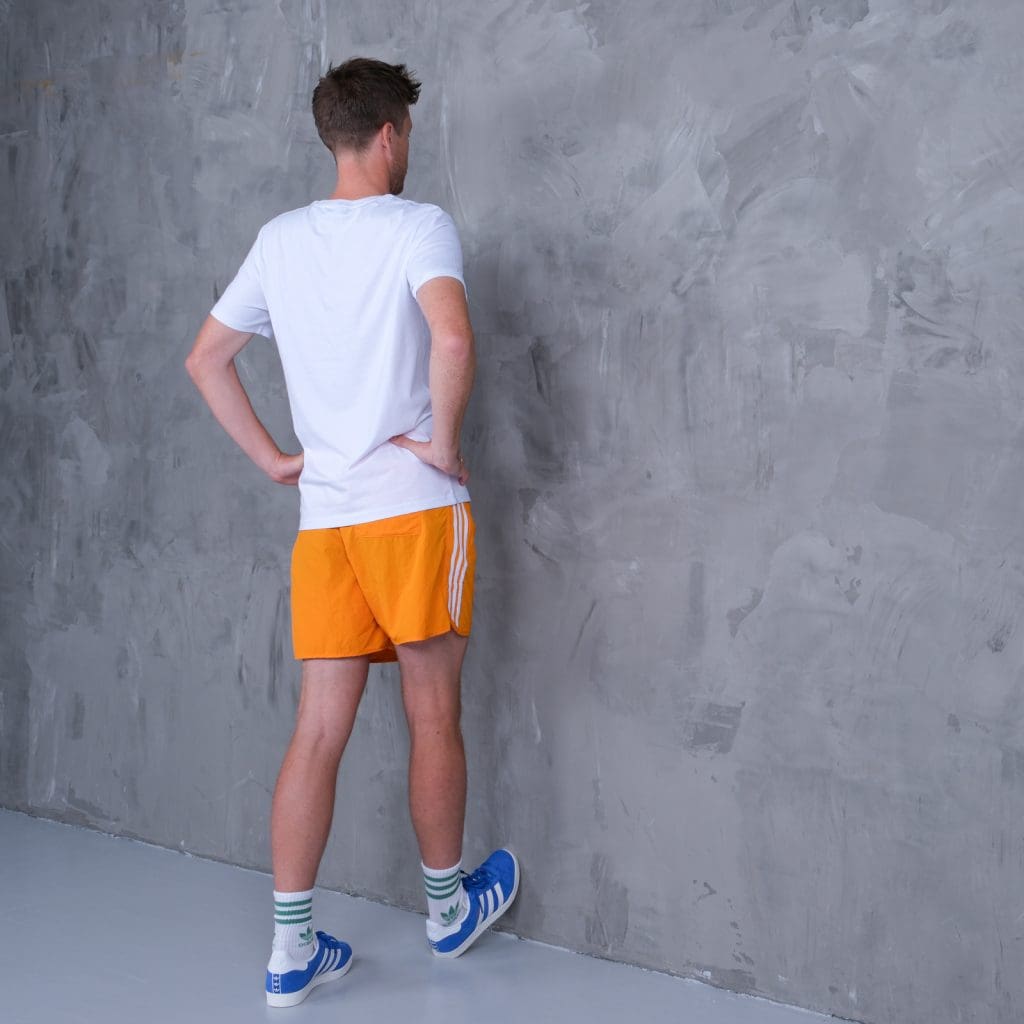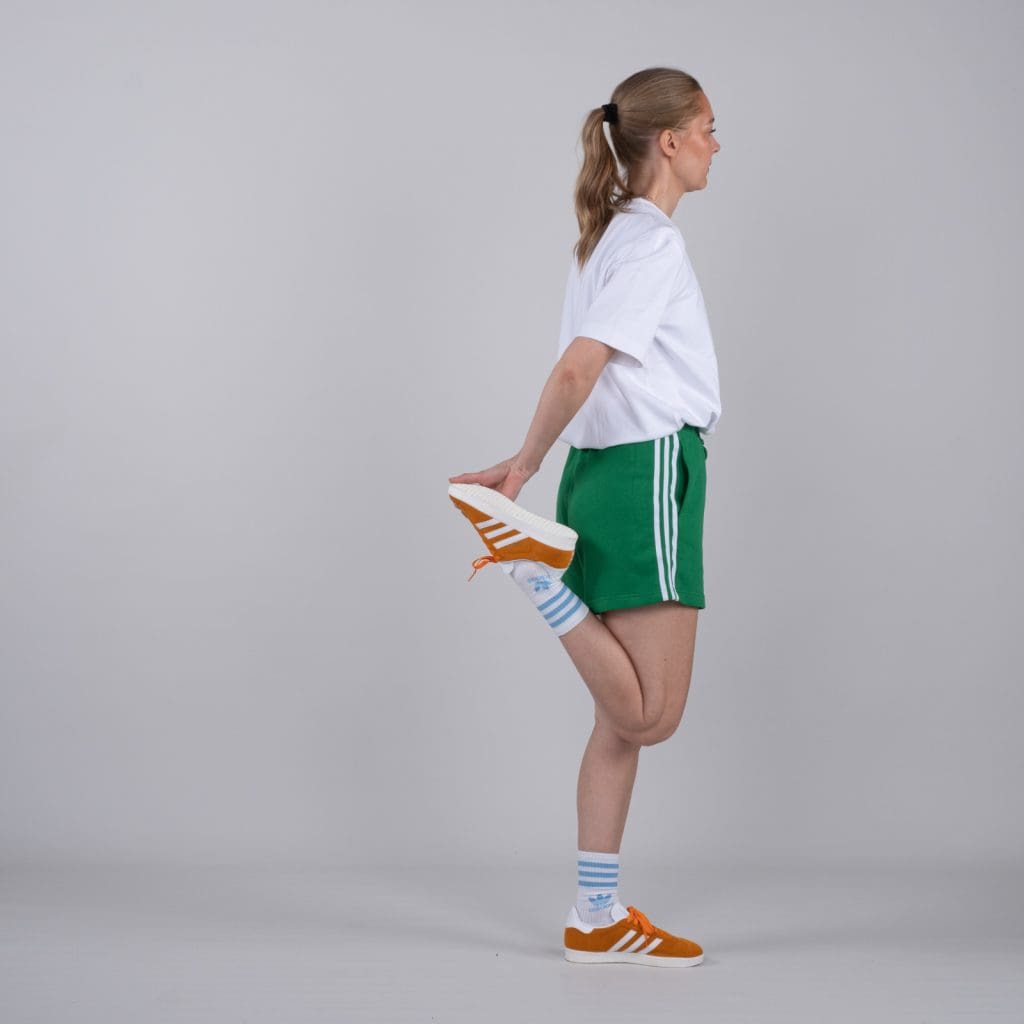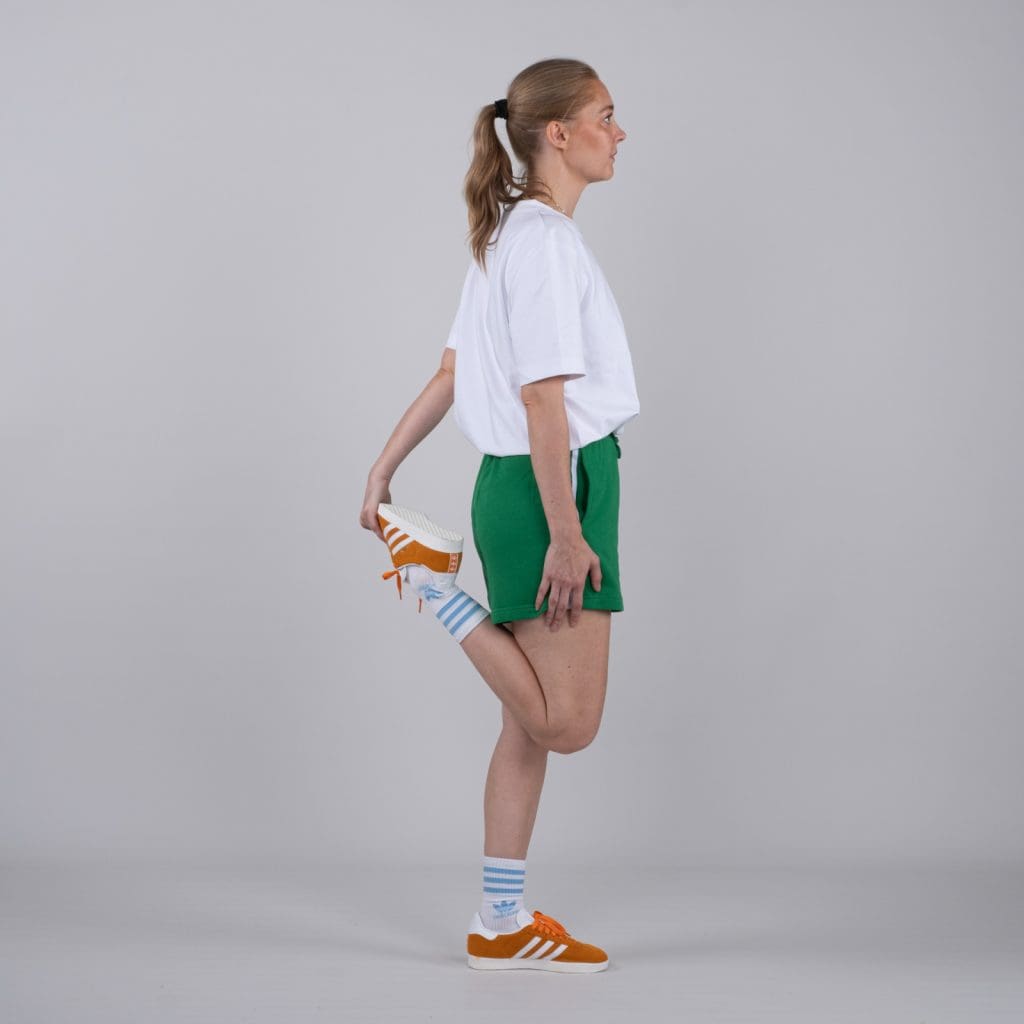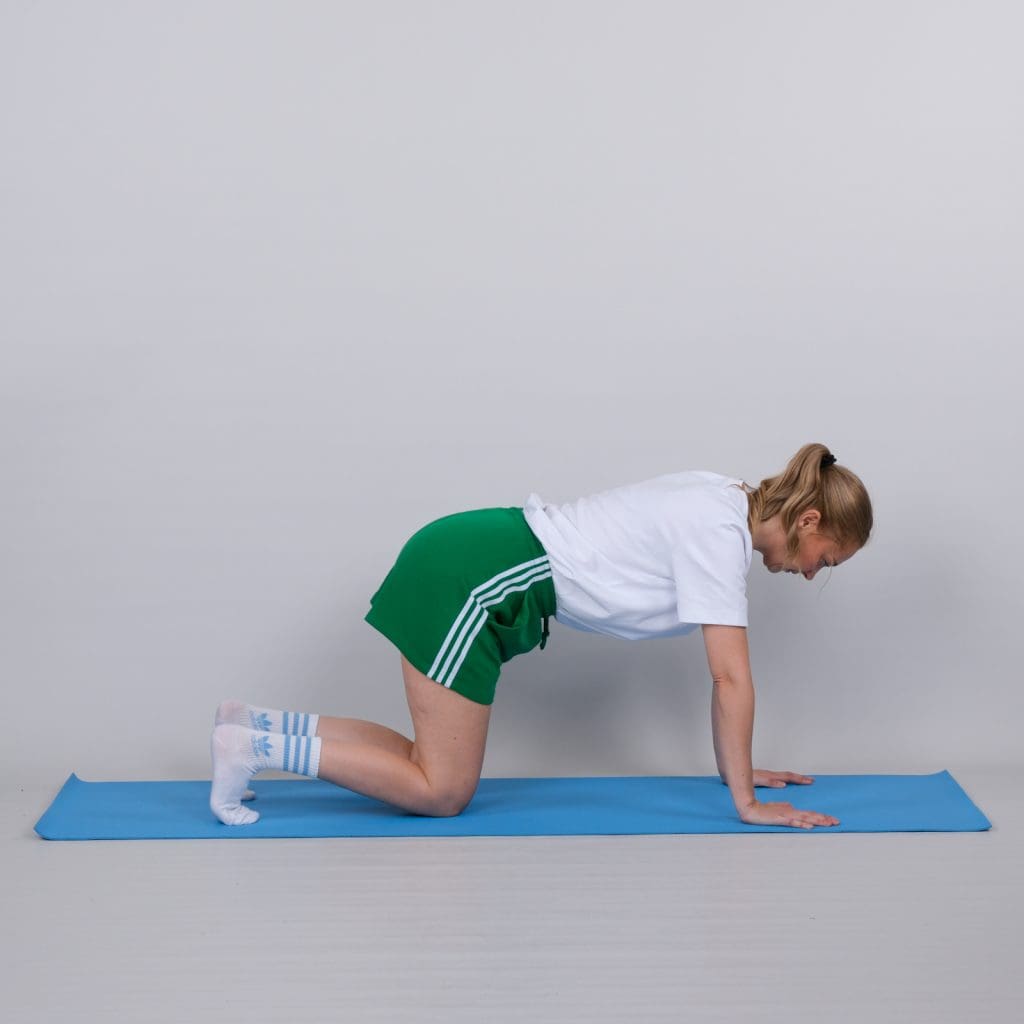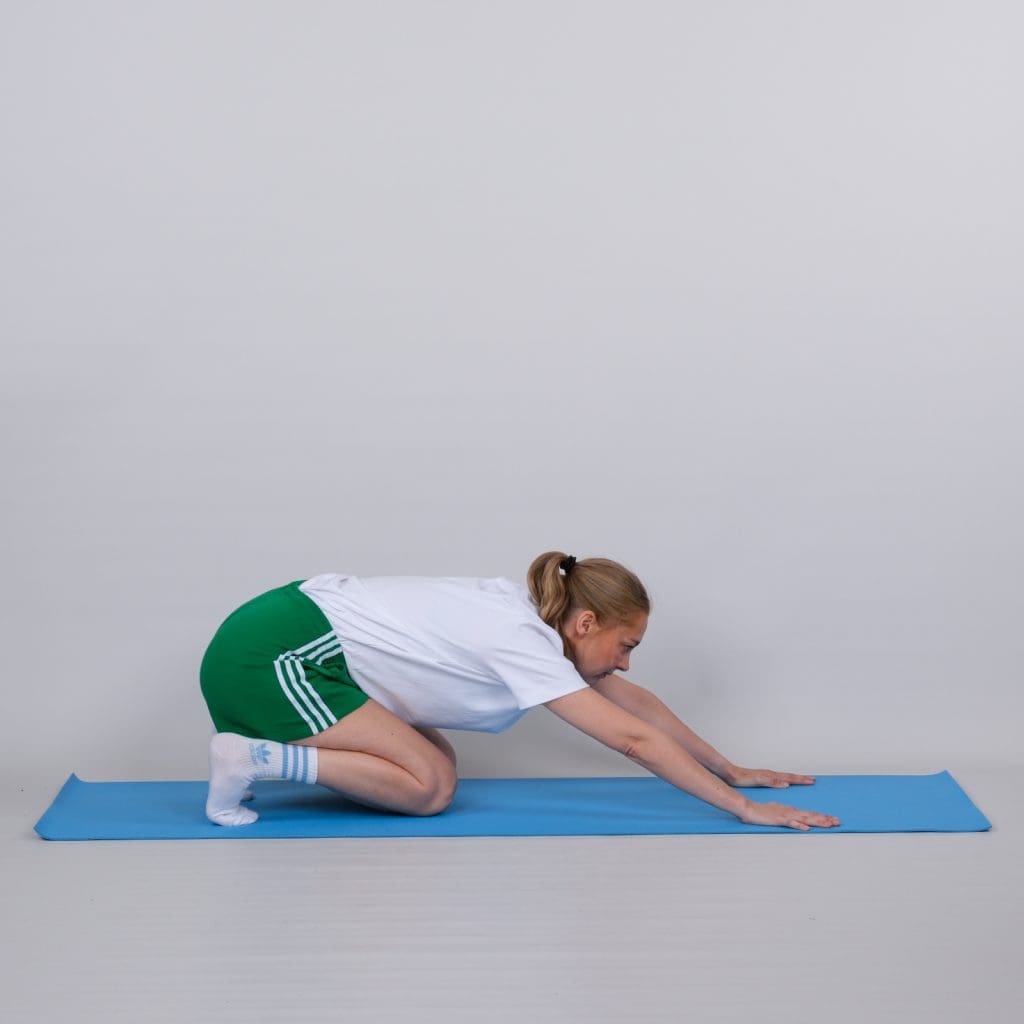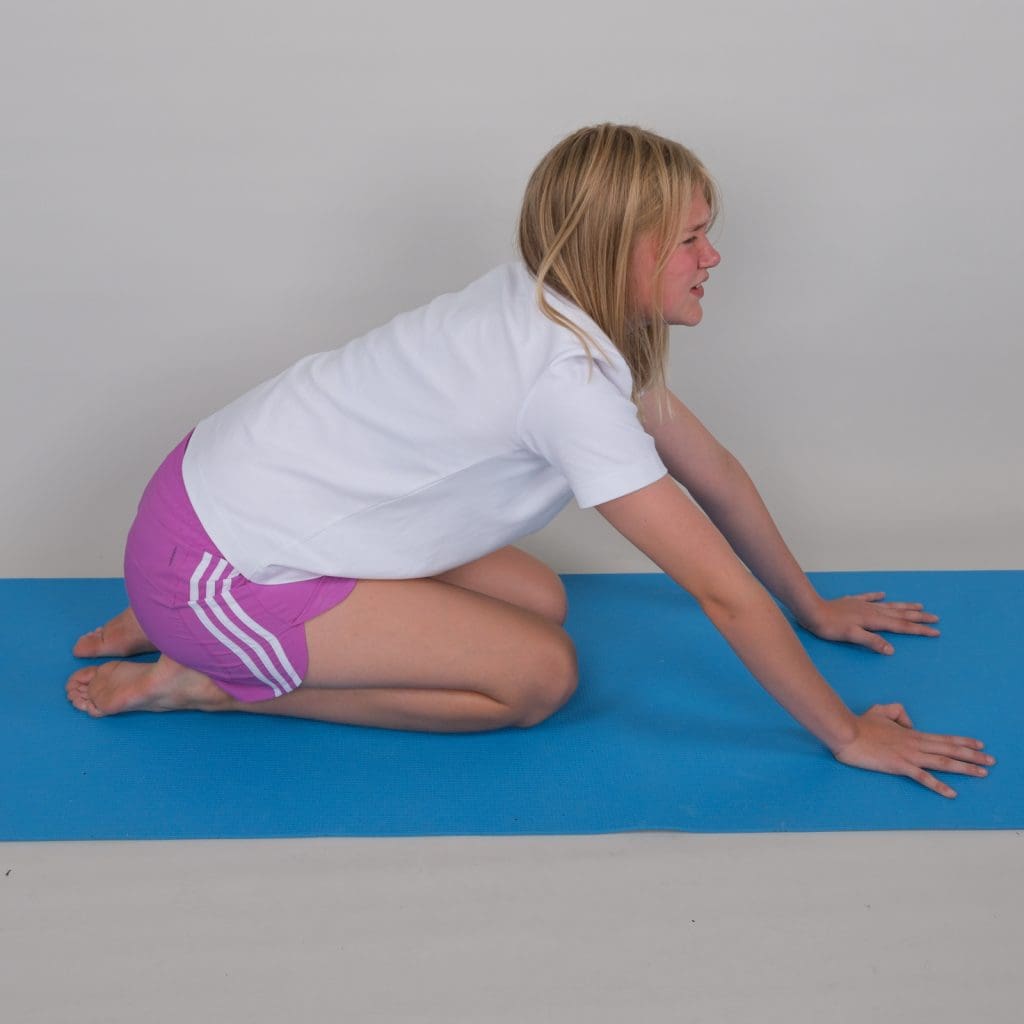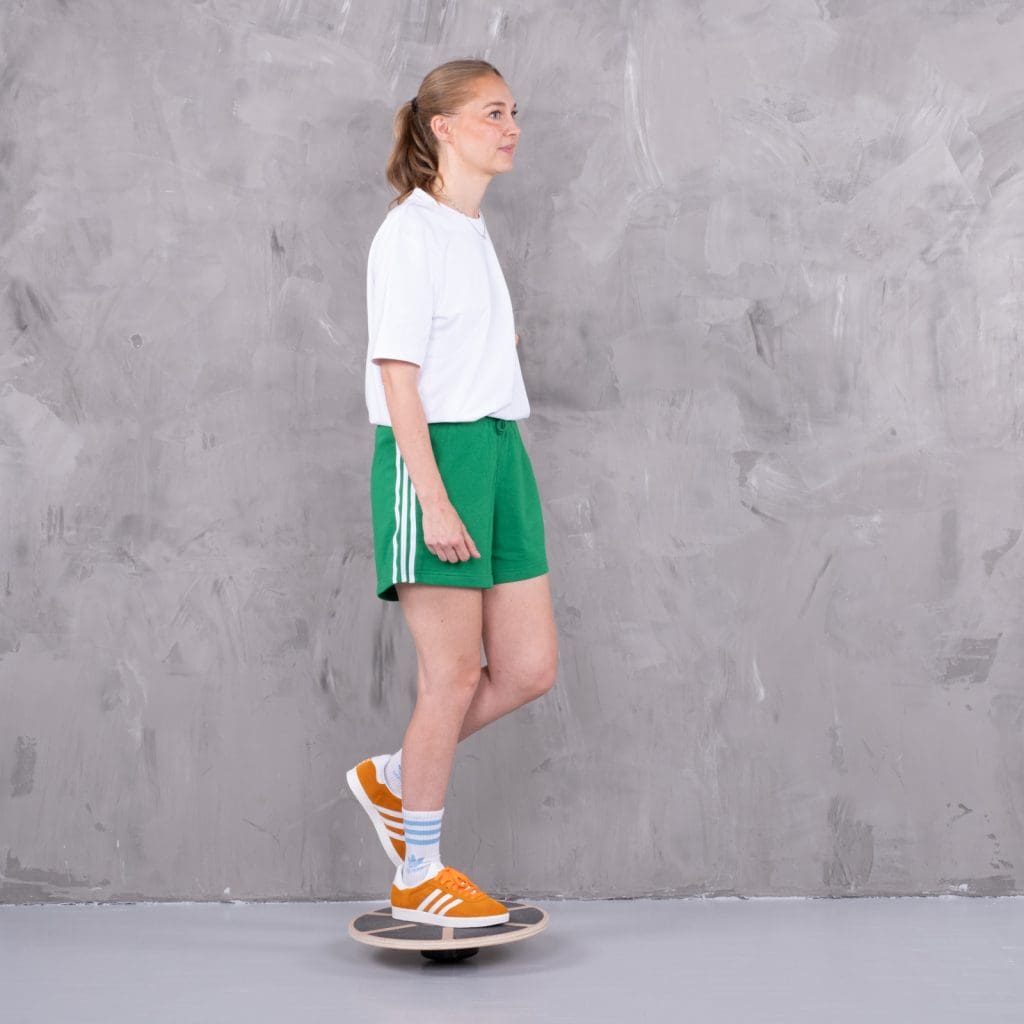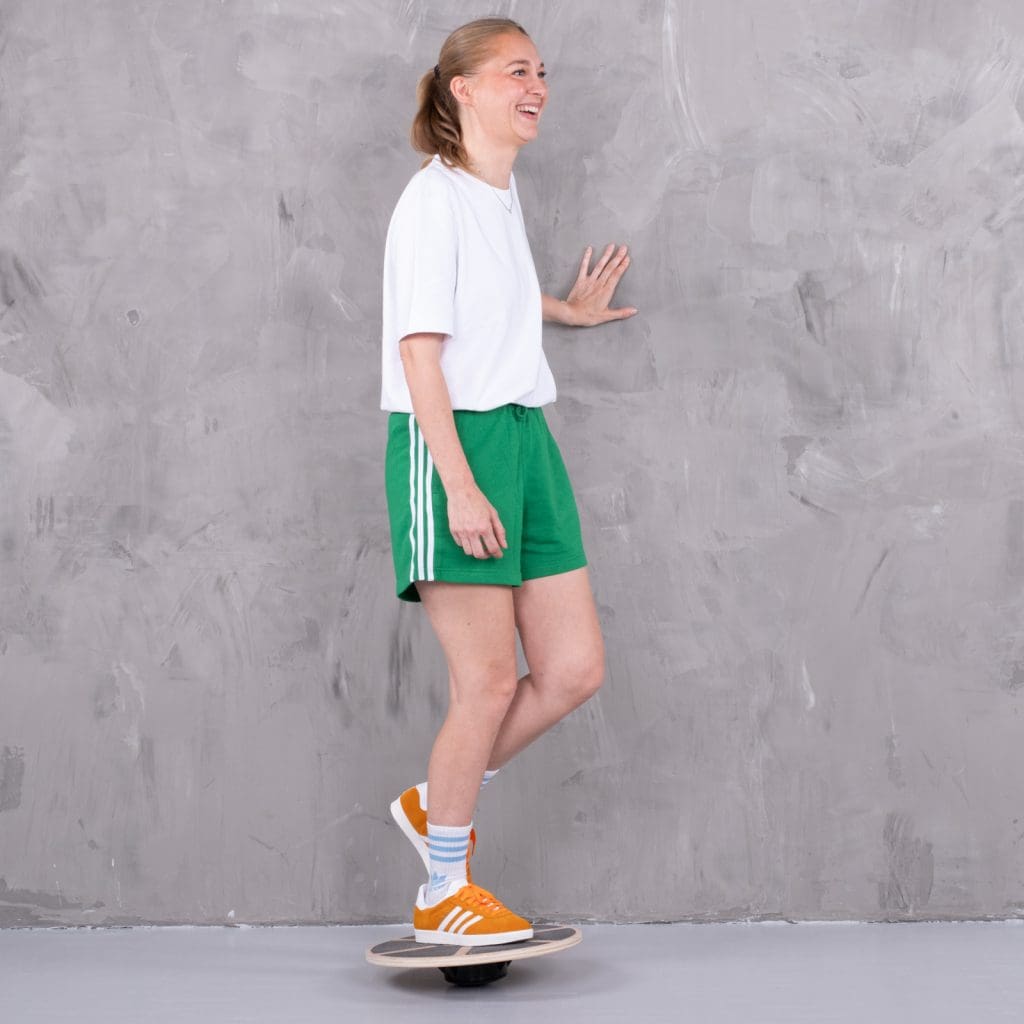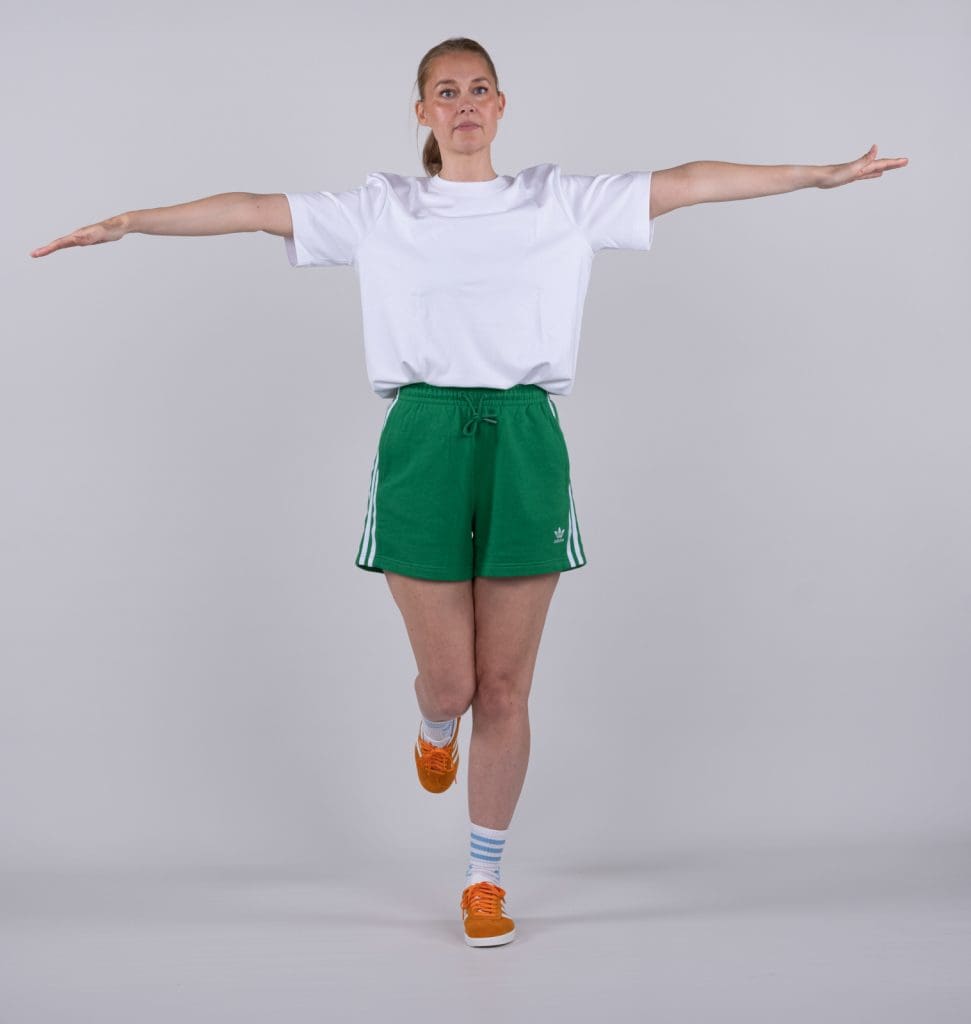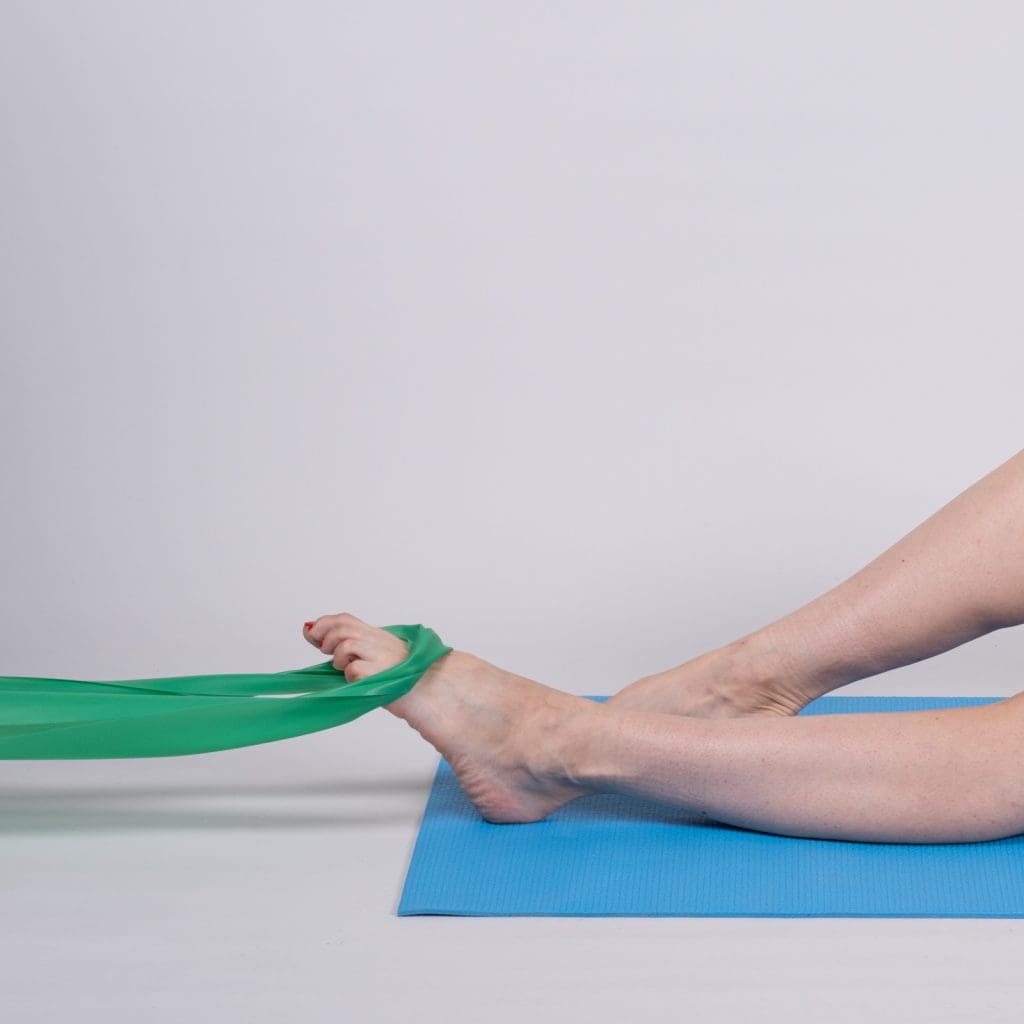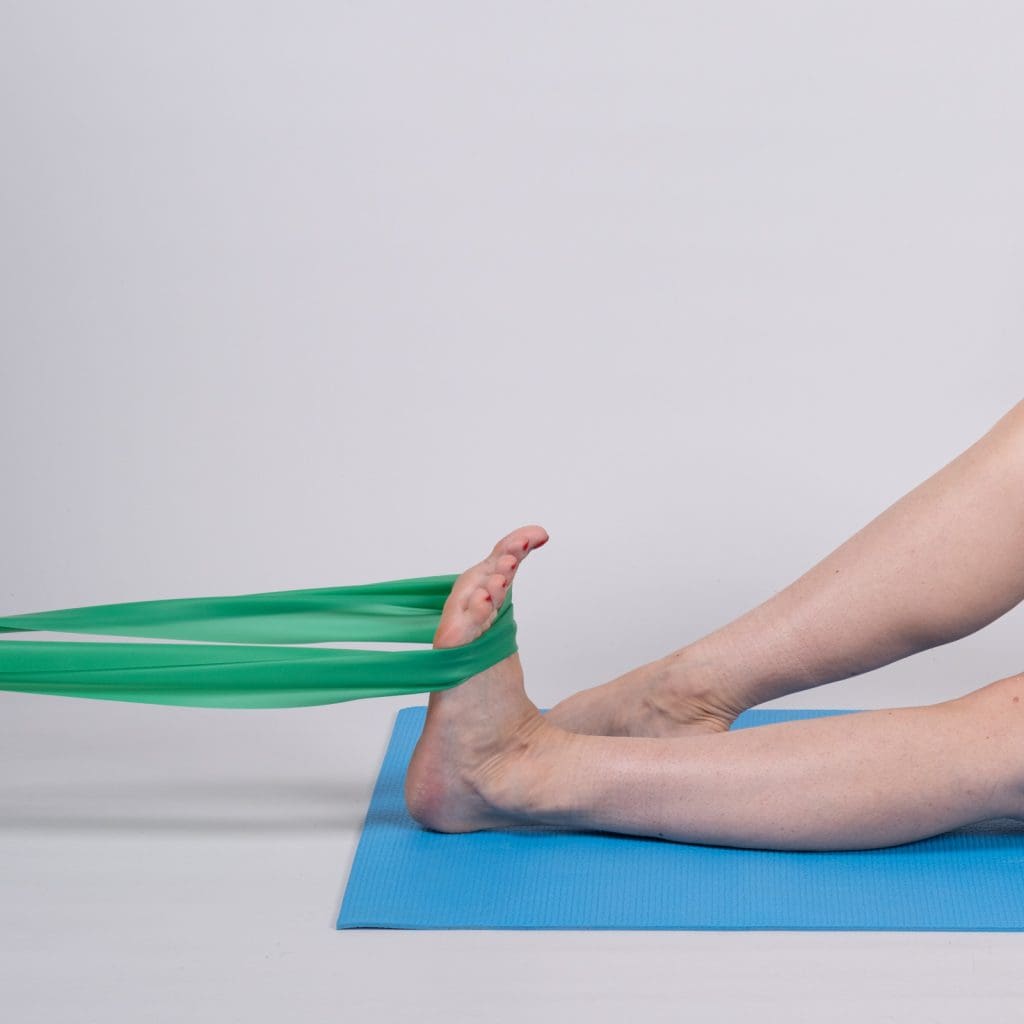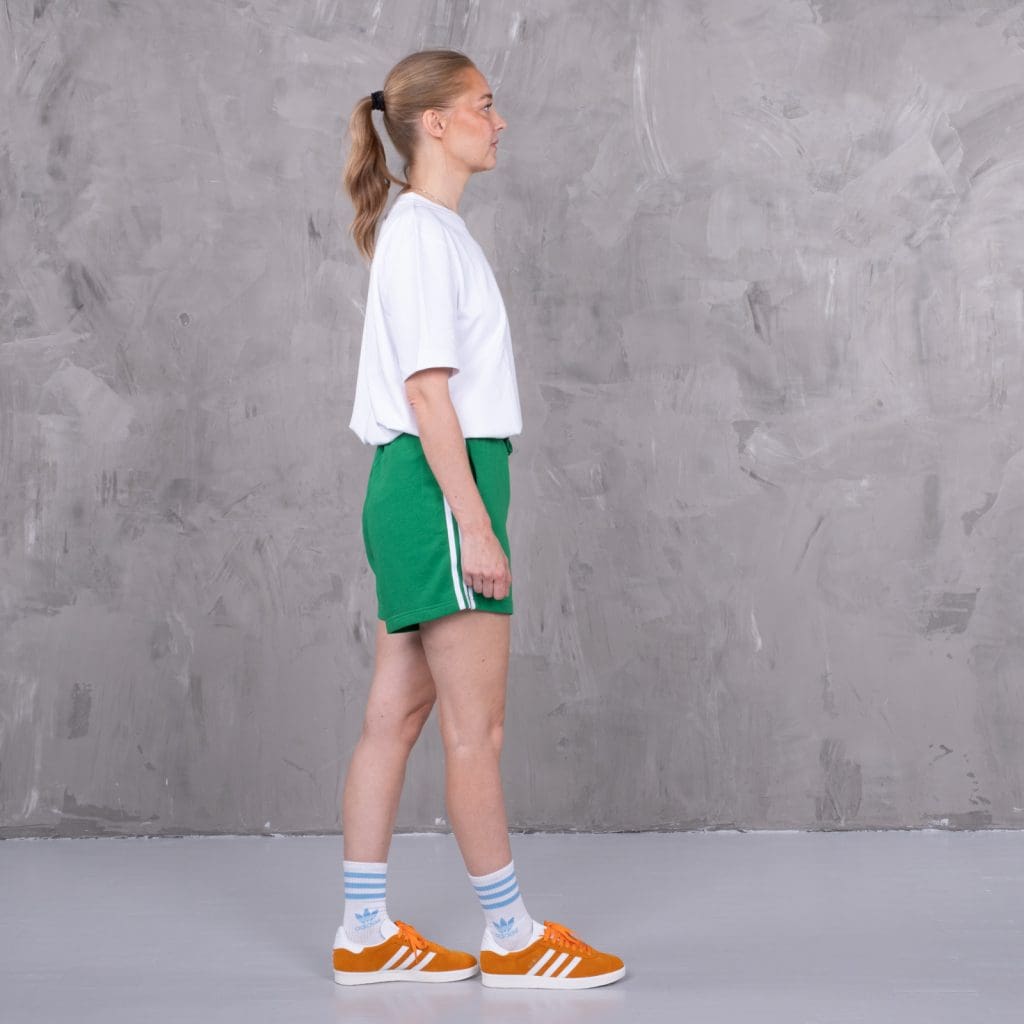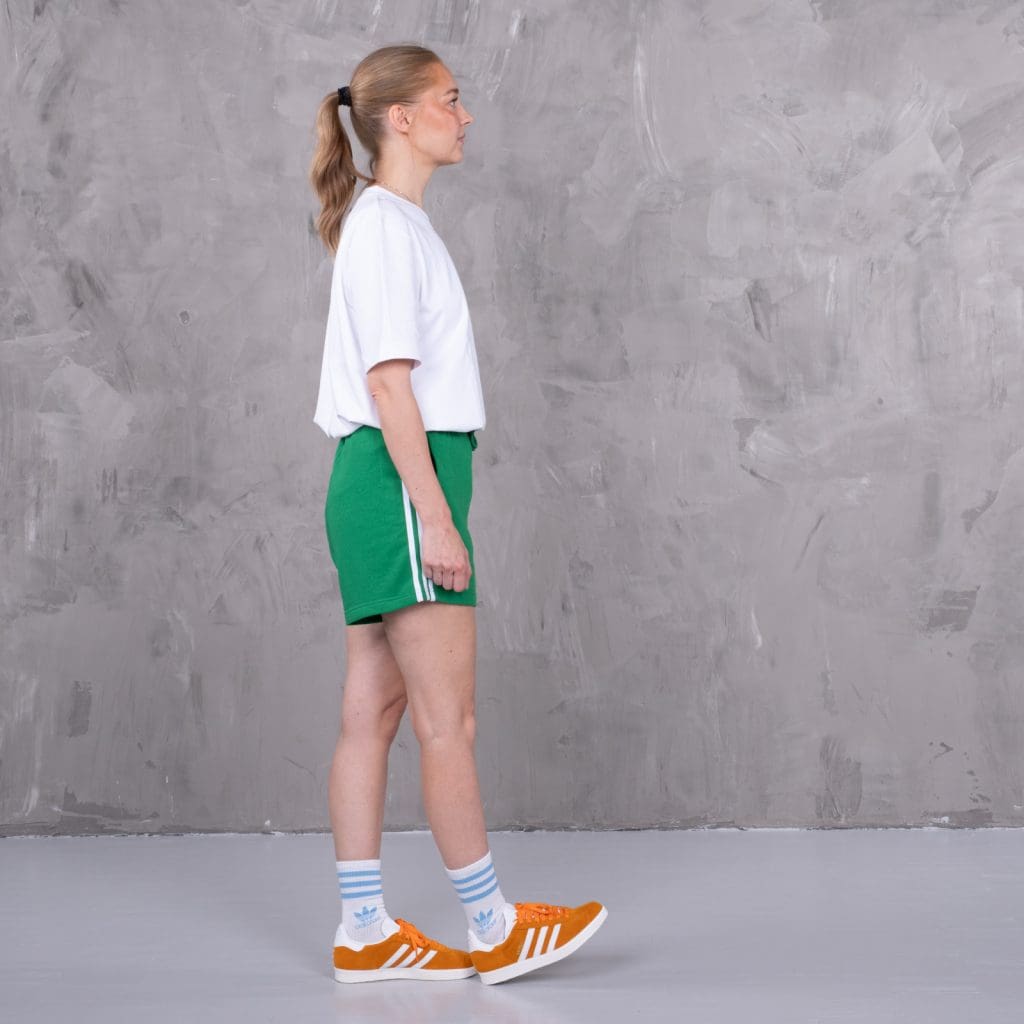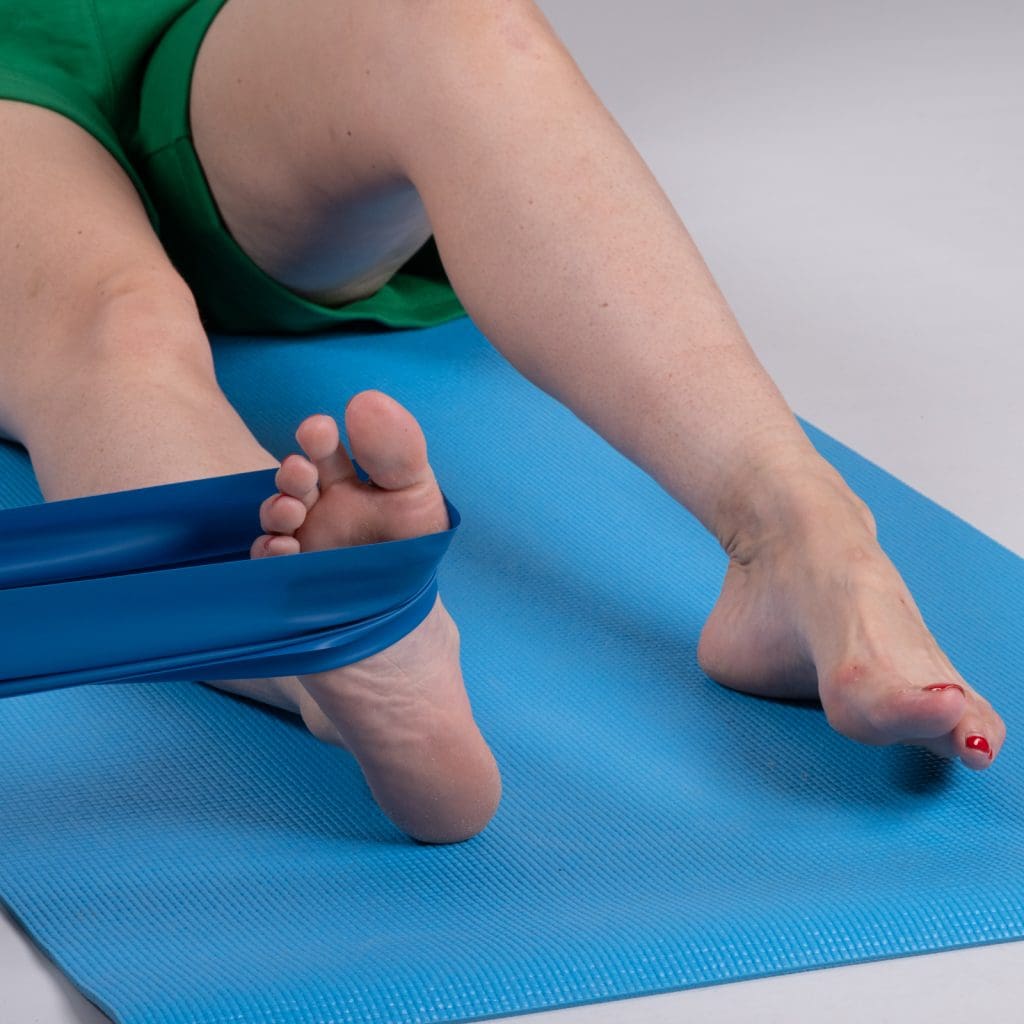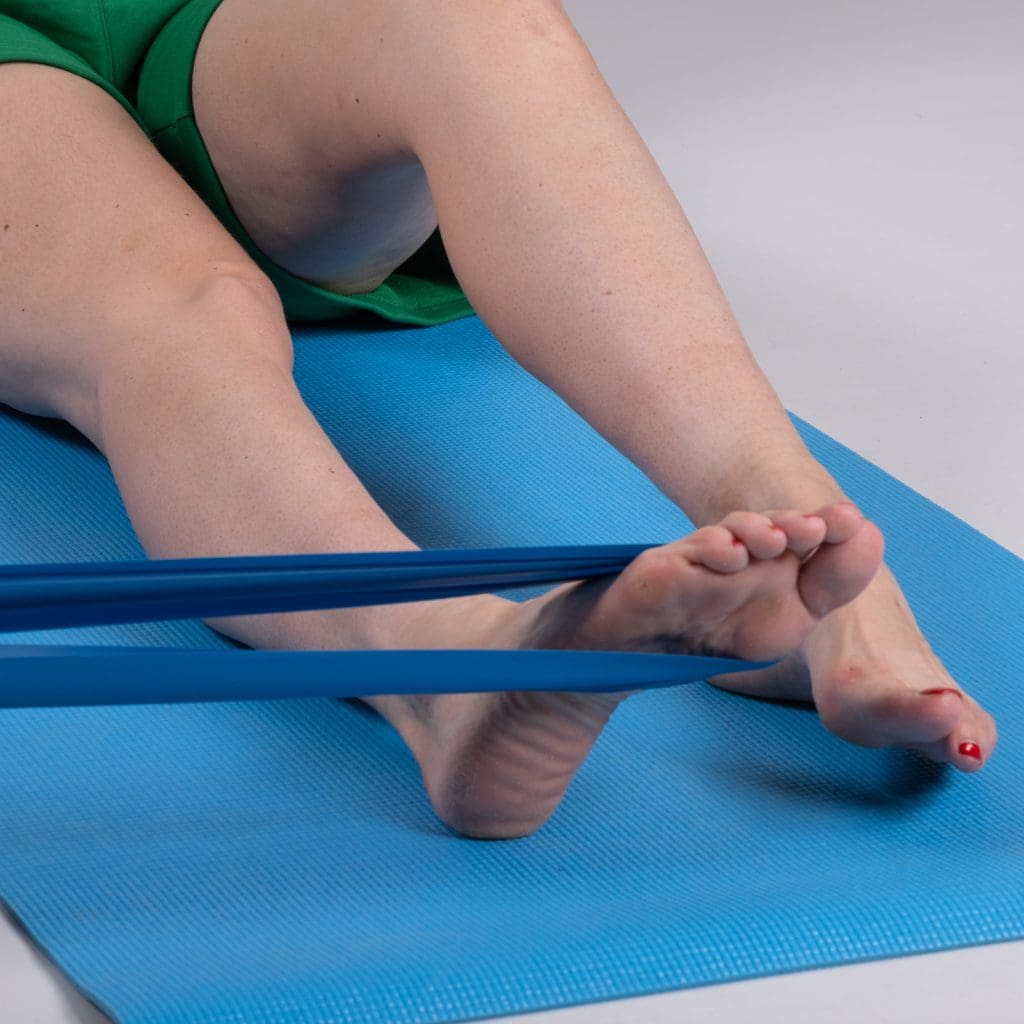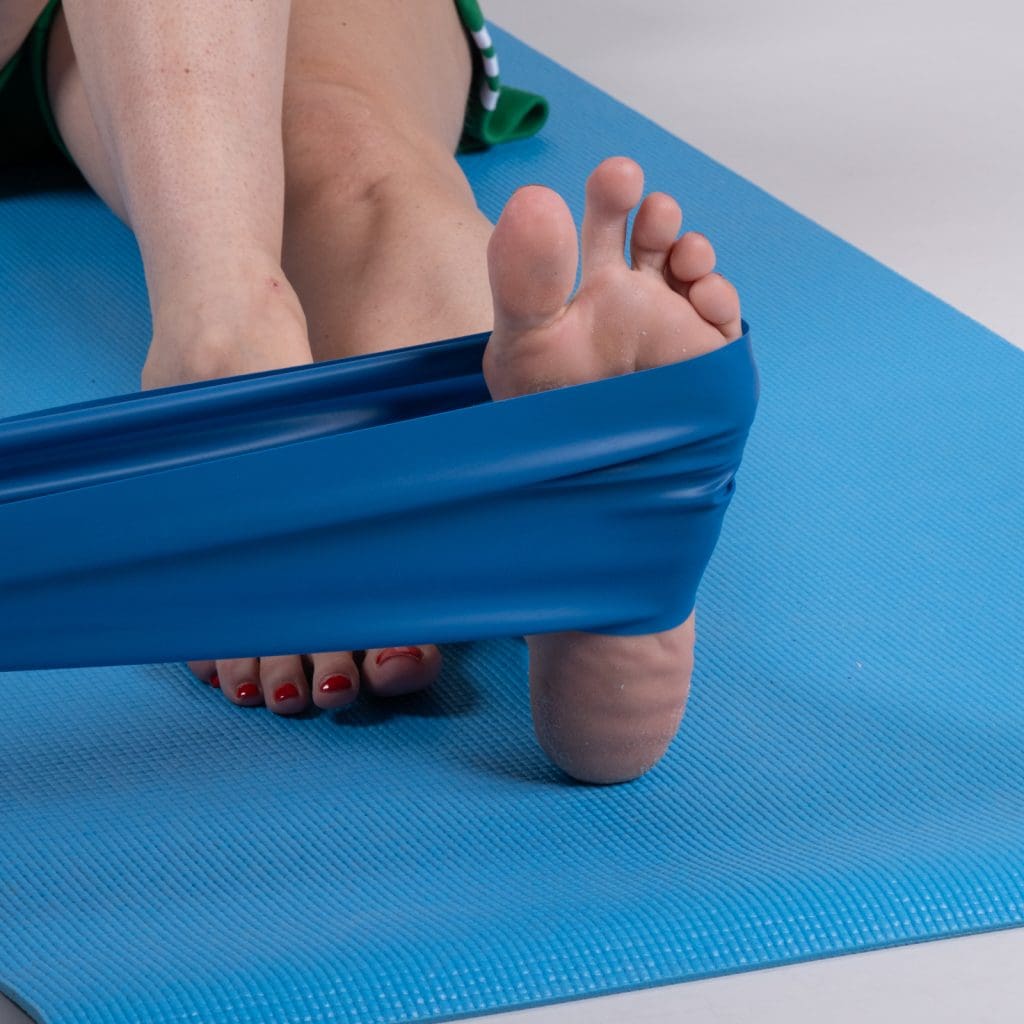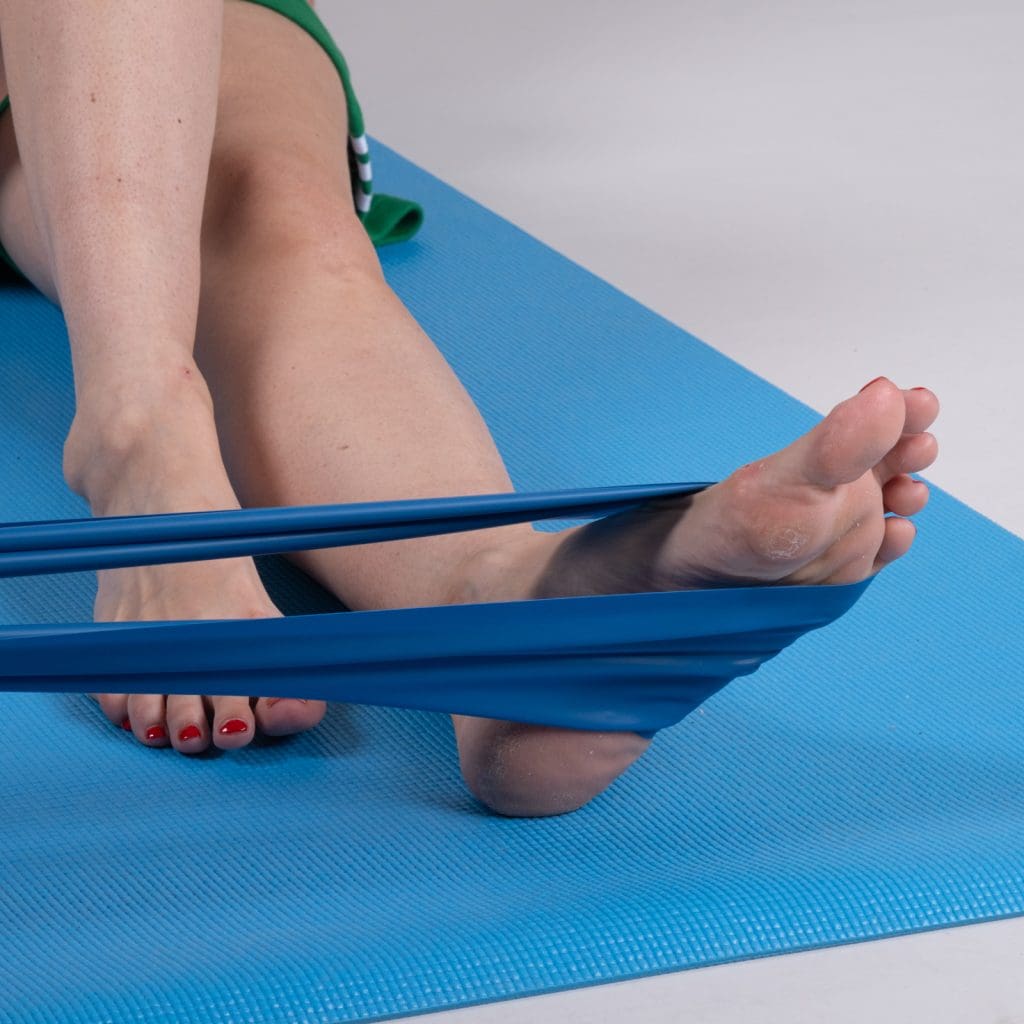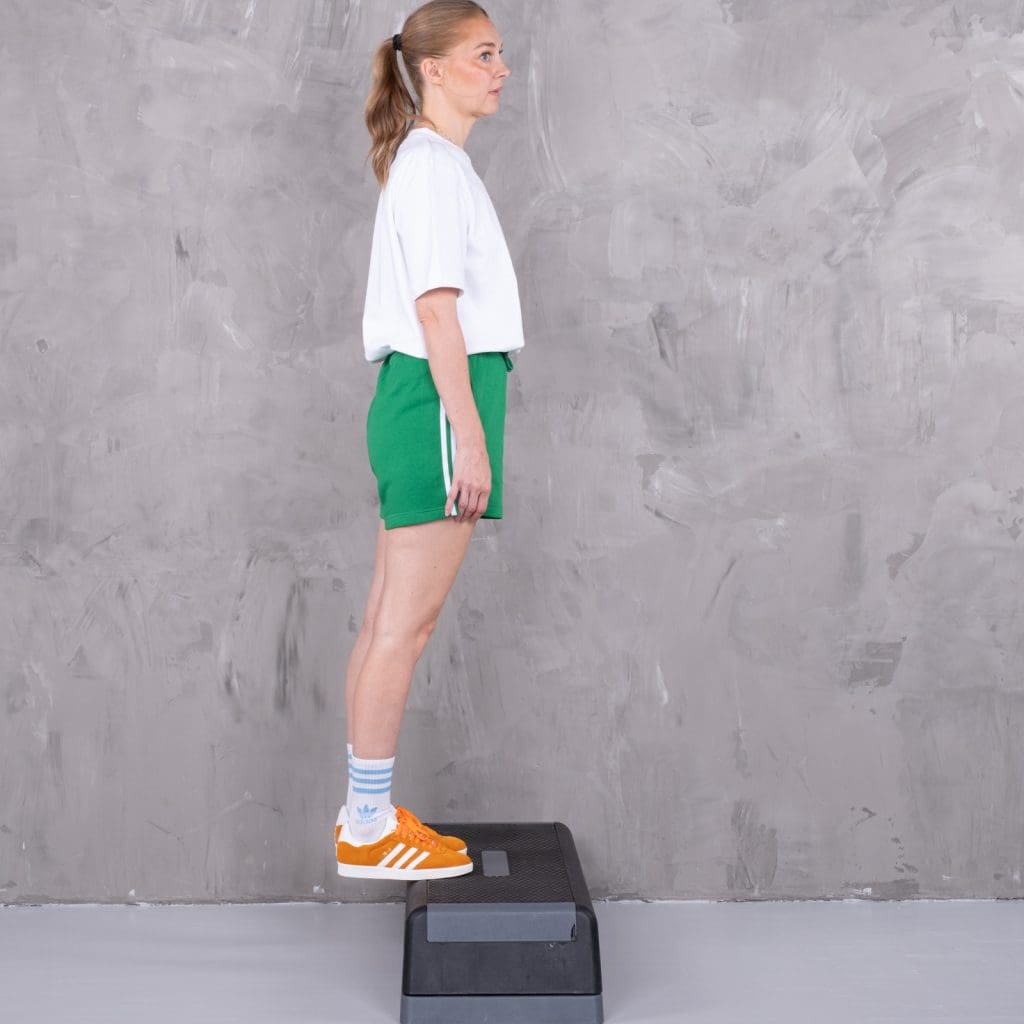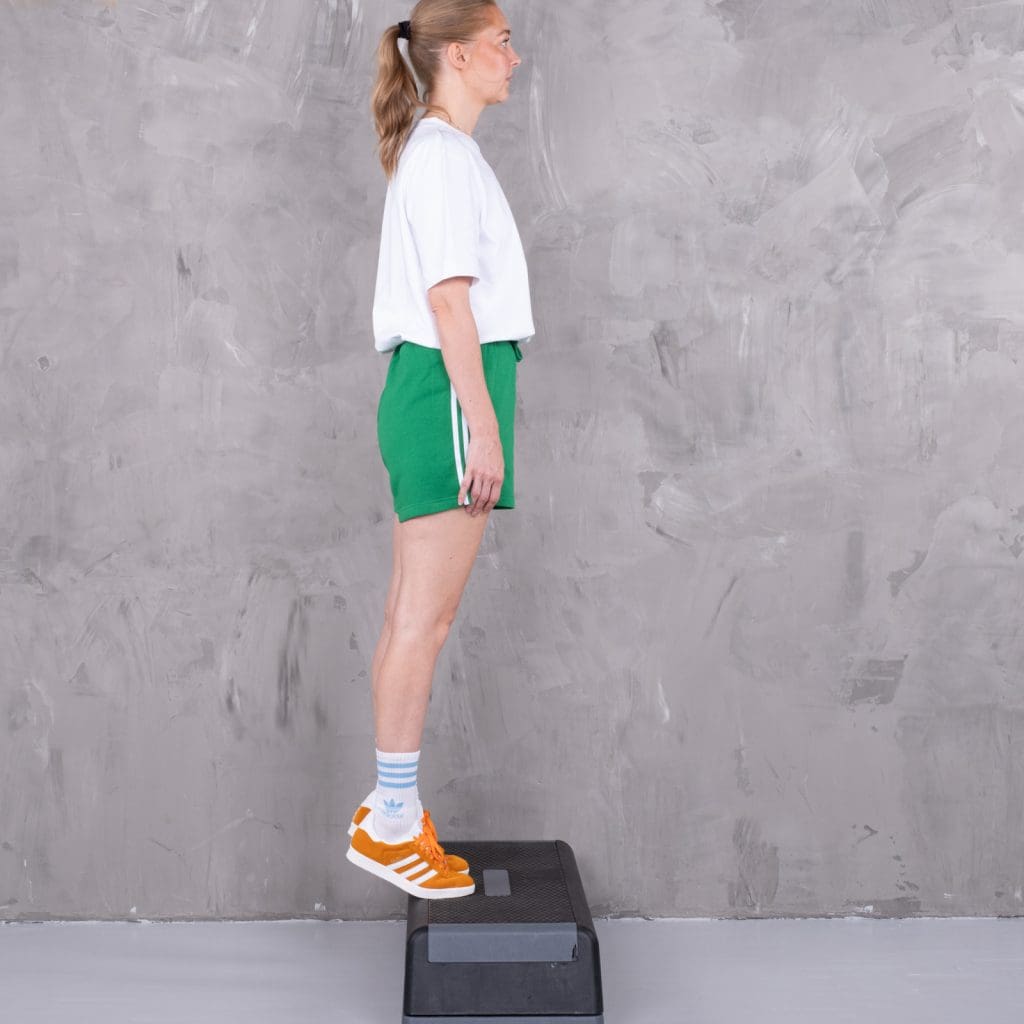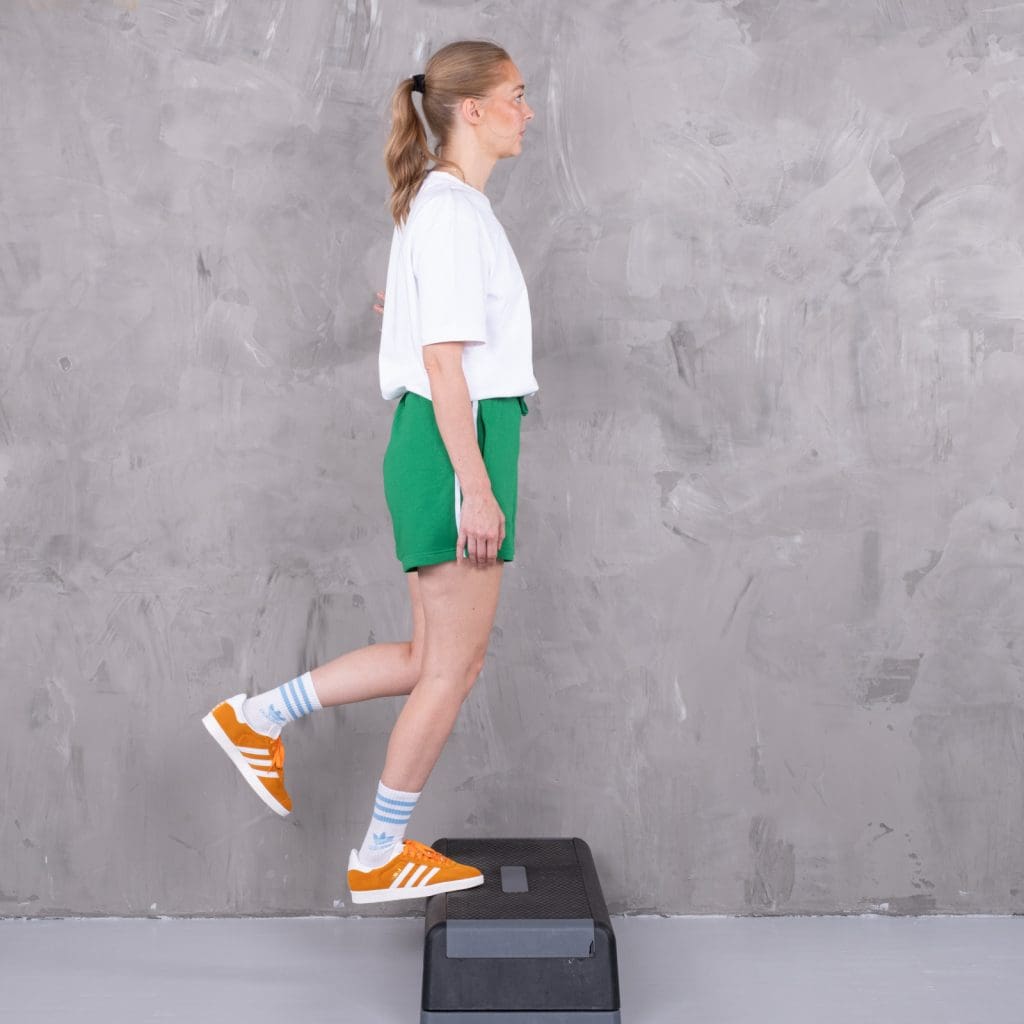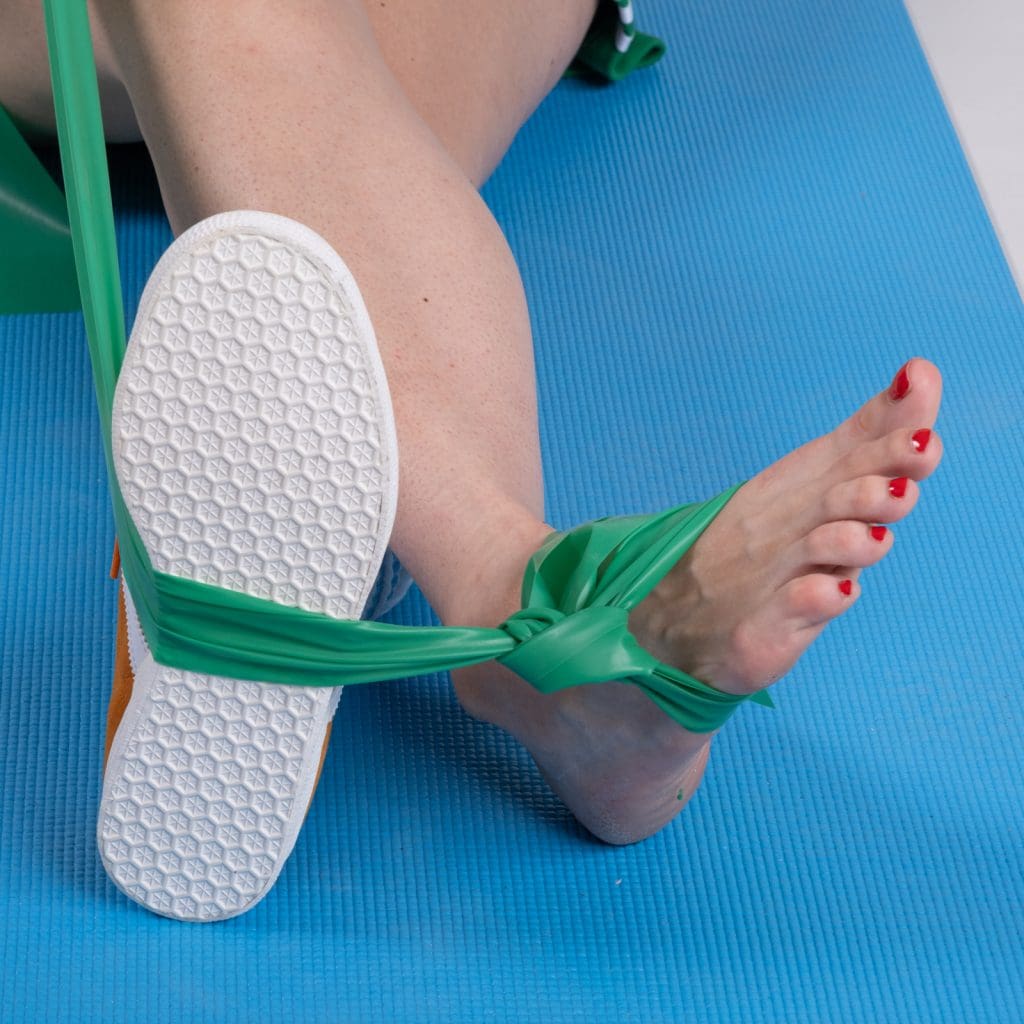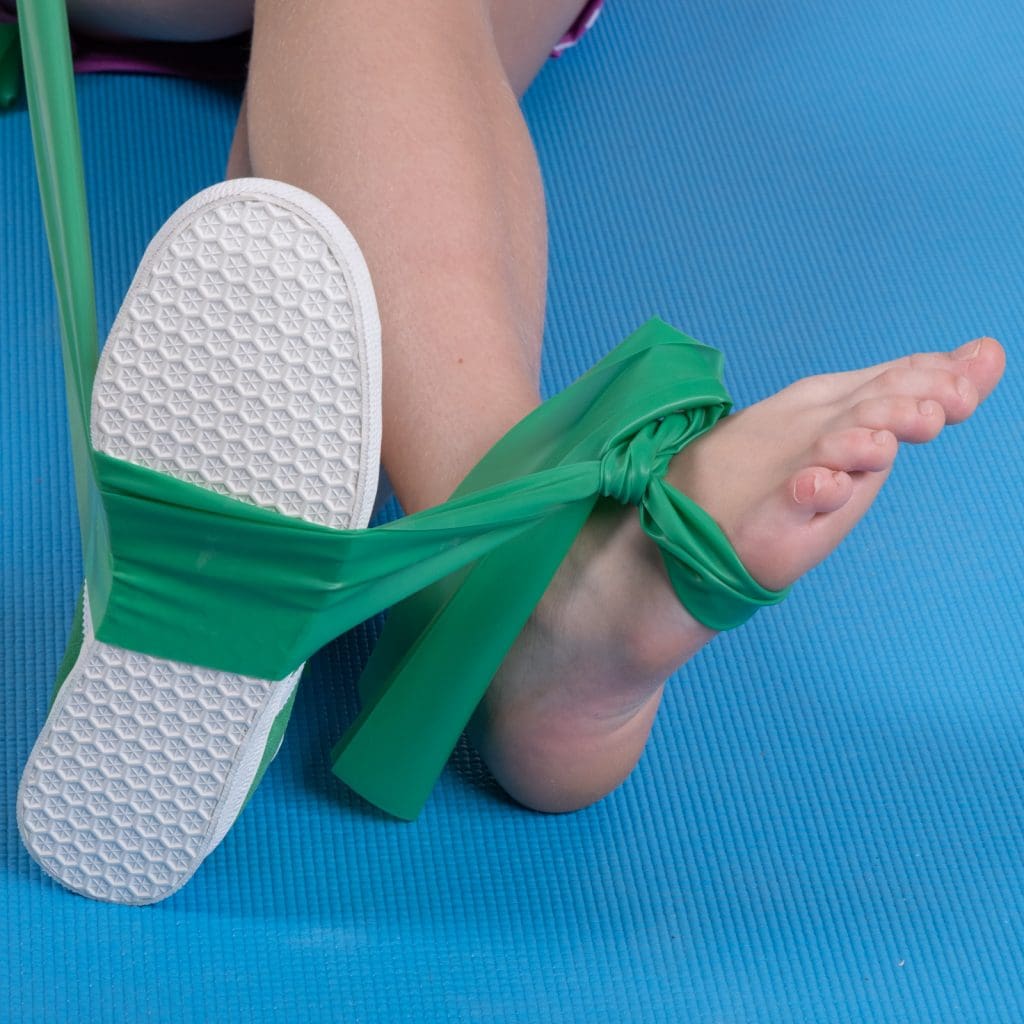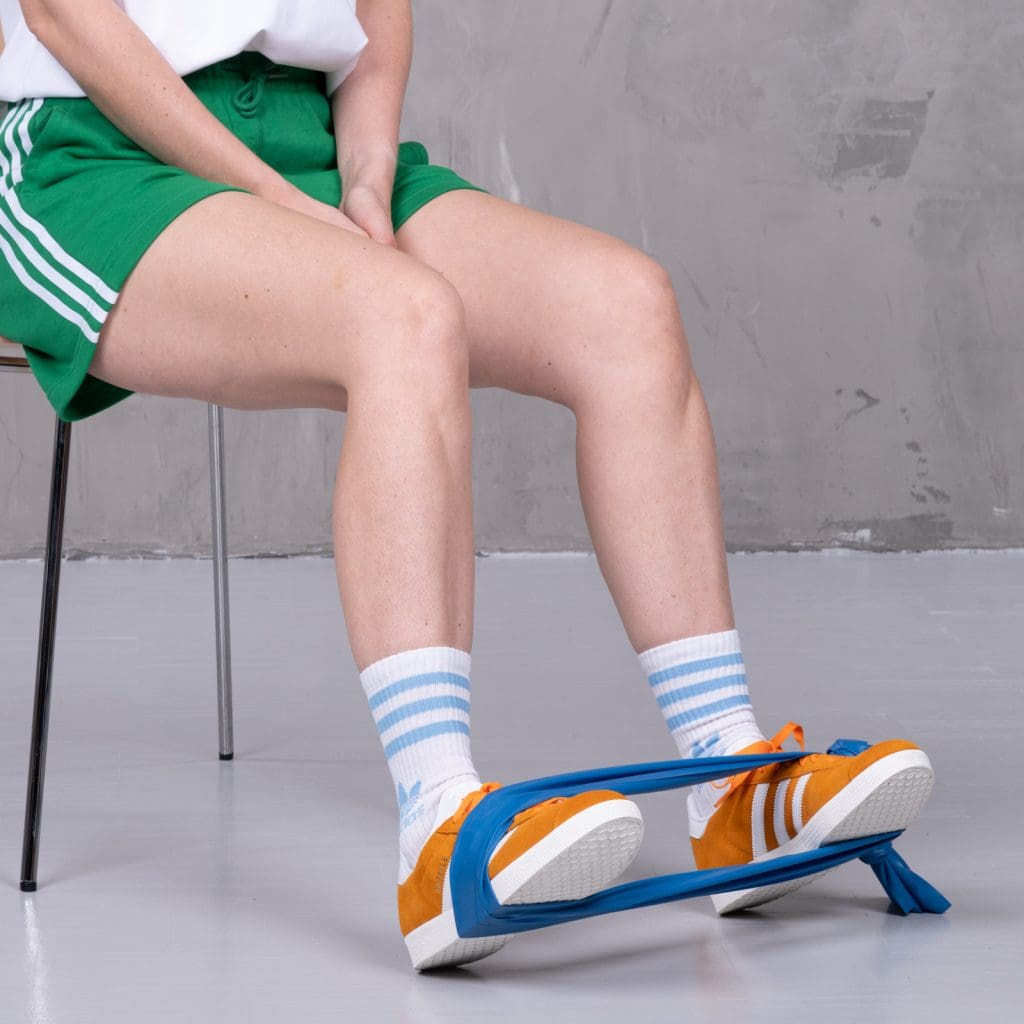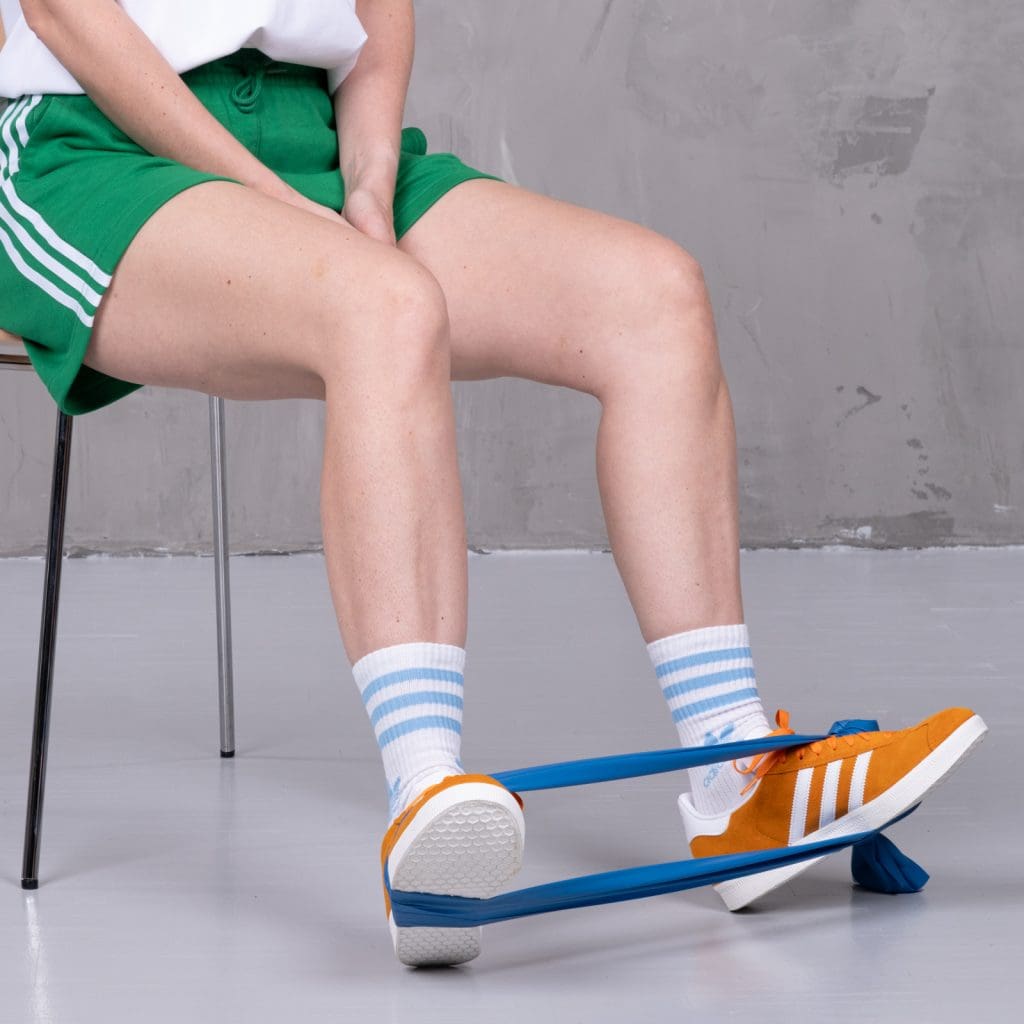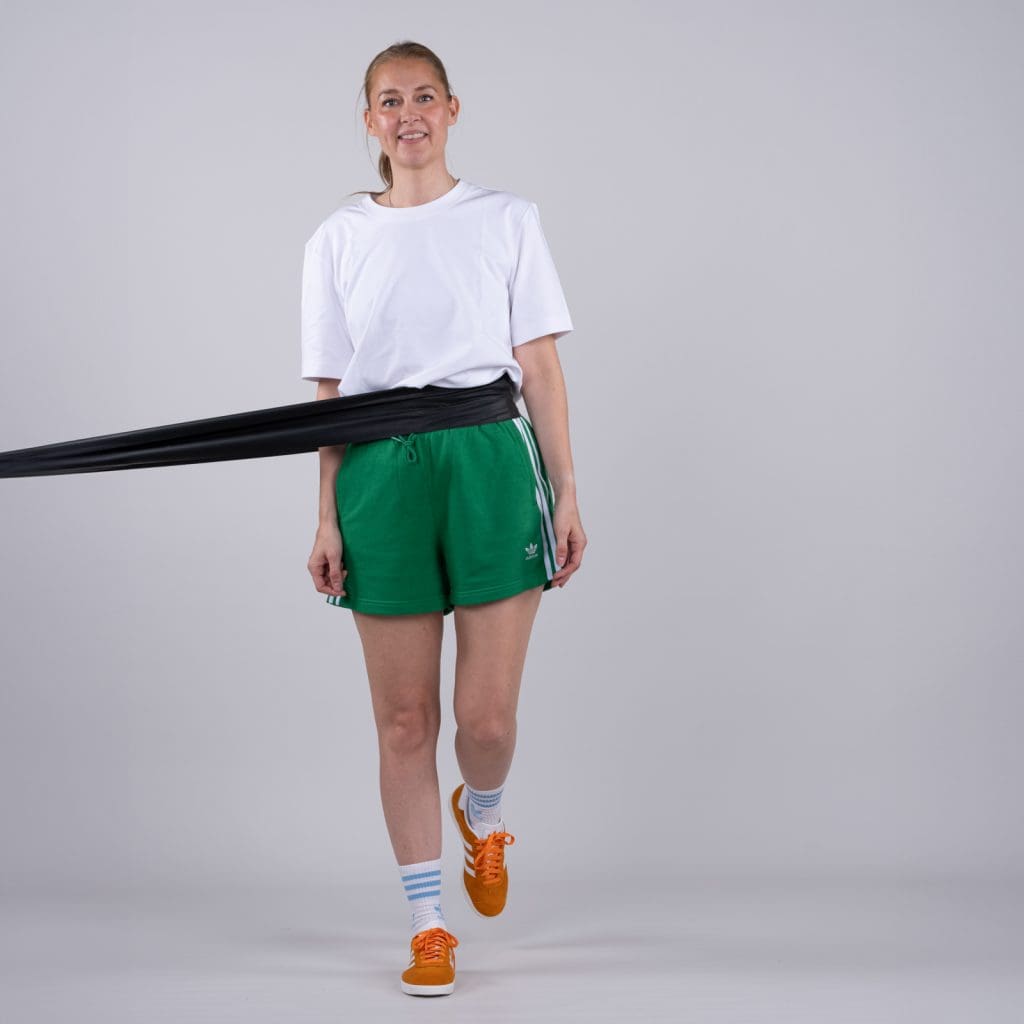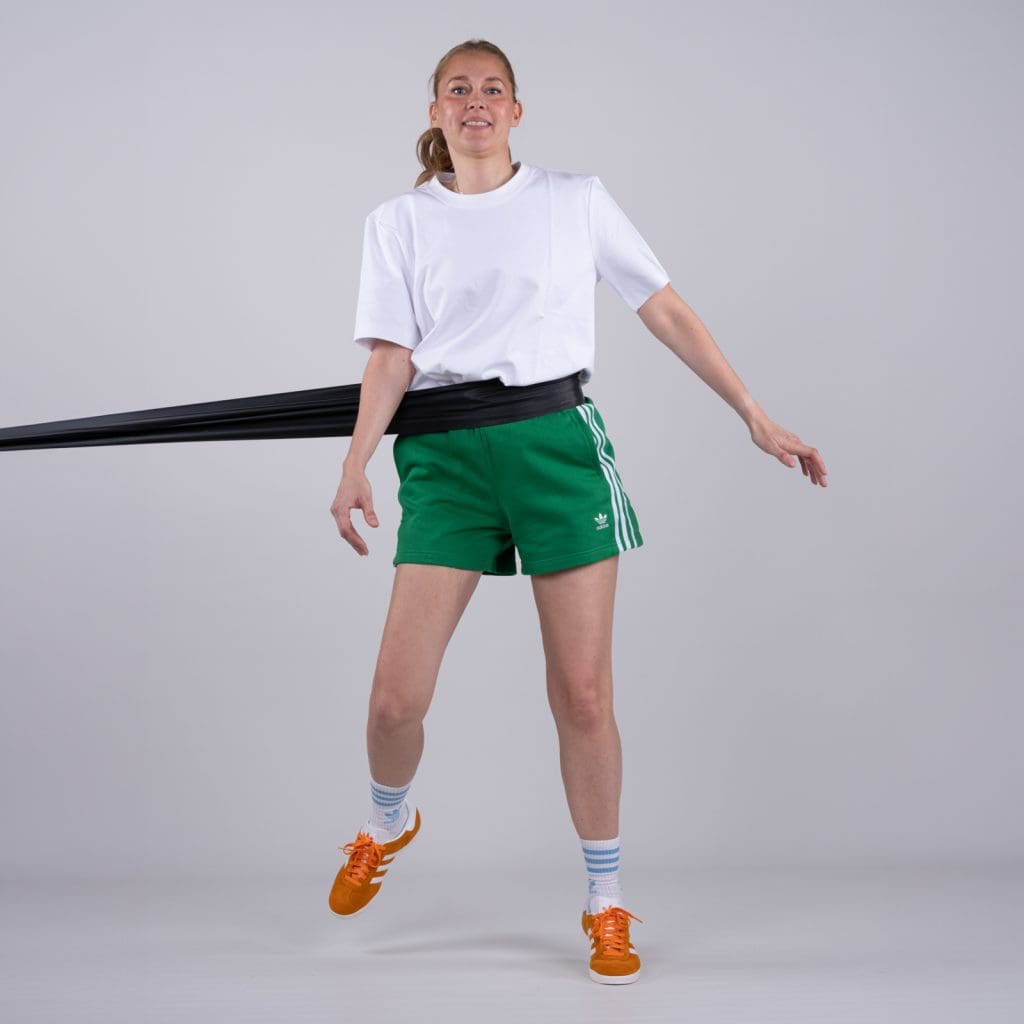Condition
Unlimited: Cycling, swimming, running with sprint and push-off
Stretching
15 minutes of each training session
Stand in front of a wall with your training leg stretched with your heel on the floor and with the ankle bent so that the forefoot rests on the wall. Press your pelvis against the wall so that the calf muscle becomes increasingly stretched. Hold the stretch for 20 seconds. Repeat the exercise on the opposite leg.
Stå på dit venstre ben. Støt eventuelt din venstre hånd mod væggen. Bøj højre knæ, og tag fat om storetåen på forfoden med højre hånd, så anklen strækkes og drejes lidt udad, og så hælen kommer ind mod balderne, og indersiden af skinnebenet strækkes mere og mere. Hold the stretch for 20 seconds. Repeat the exercise alternately on the right and left leg.
Stand on your left leg. Bend your right knee and grasp the ball of your right foot with your left hand. Slowly pull upwards so that the ankle is maximally stretched and the heel comes towards the buttock and the foot is brought over behind the healthy leg so that the outside of the tibia is increasingly stretched. Hold the stretch for 20 seconds. Repeat the exercise alternately on the right and left leg.
Coordination
5 minutes of each training session
Strength
40 minutes of each training session.
Attach an exercise band to a heavy chair leg. Sit on the floor with your legs straight and face the resistance band. Wrap the exercise band around your forefoot (back of the foot). Slowly bend your foot upwards to tighten the elastic band. Hold the tension for a few seconds and slowly bring the foot back to the starting position
Attach an exercise band to a heavy chair leg. Sit on the floor with your leg straight with the inside of the training foot next to the chair leg. Wrap the exercise band around your forefoot (outside). Slowly turn your foot sideways to tighten the elastic band. Hold the tension for a few seconds and slowly return the foot to the starting position. Do not rotate the knee.
Attach an exercise band to a heavy chair leg. Sit on the floor with your leg straight with the outside of the training foot next to the chair leg. Wrap the exercise band around your forefoot (inside). Slowly turn your foot sideways towards the other foot to tighten the elastic band. Hold the tension for a few seconds and slowly move the foot back to the starting position. Do not rotate the knee.
Stand on both front feet on a step with your heel over the edge. Slowly stand up on your toes with your weight on your healthy leg. Slowly lower yourself down onto the training leg as far as you can go, tightening the calf muscle. Use the healthy leg to get back on your toes. Support with a hand on the wall if necessary. The exercise is performed alternately with the knee stretched and bent. The load can be increased by putting on a backpack and gradually increasing the ballast in the backpack.
Lie on your back with your legs straight. Lower legs crossed. Wrap an elastic band around the foot of the training leg. Place the sole of the other foot on the elastic band very close to the foot of the training leg, which is rotated as far away from the other foot as possible so that the outer collateral ligaments and the elastic band are stretched to the maximum. Hold the tension for a few seconds and then slowly bring the feet back together.
Attach an exercise band at hip height. Wrap the exercise band around your hip so that the exercise band is taut. Stand on your healthy leg with your side facing the resistance band. Sit down on the healthy leg and land on the training leg further away so that the exercise band is further tensioned. Remember that the elastic band should be positioned so that it provides resistance in the push-off. Repeat the exercise on the opposite leg.

